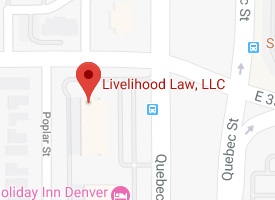
While journalists have reported extensively on high profile sexual harassment cases this year, most people still know very little about what sexual harassment means in a legal sense. What’s even more troubling is that many employees believe that because they work in “at-will” states, employers can still legally fire them if they do speak up. But you don’t have to put up with sexual harassment, ever!
Here’s the truth about the current state of the laws in Colorado, and what you need to do to fight back.
Sexual Harassment Law In Colorado
Both the Colorado Anti-Discrimination Act and Title VII of the 1964 Civil Rights Act prohibit unwelcome sexual conduct when that conduct affects an individual’s employment, unreasonably interferes with an individual’s work performance, or creates an intimidating, hostile, or offensive work environment. In Colorado, the essential elements for proving unlawful sexual harassment are:
- The victim must not welcome the harasser’s sexual conduct;
- The harasser’s behavior must be sexual in nature; and
- The violator’s conduct must be such that a reasonable person would anticipate that a victim would be offended, humiliated, or intimated by the unwanted sexual behavior.
“Employment-At-Will” Laws And Sexual Harassment
While it is true that in “at-will” states like Colorado employers can fire workers for any reason or no reason, the justification for letting an employee go cannot be illegal. No matter how you slice it, firing or penalizing an employee for rejecting unwanted sexual conduct or reporting sexual harassment is illegal even in at-will states. Your employer is legally required to protect you from sexual harassment in any “at-will” state, including Colorado.
Responding to Unwelcome Sexual Conduct
Sometimes to “get along” with coworkers and supervisors, workers do not explicitly state how they feel or immediately report unwelcome sexual behavior, and might even try to laugh it off. While it’s best to firmly reject any unwanted advances in the workplace, failing to do so does not bar you from pursuing legal avenues to protect your rights. Never put up with illegal behavior because you didn’t know how to respond at the moment. Instead, protect your rights by reporting any incidents of sexual harassment to someone who can help.
Keep Records
Documenting all incidents of harassing behavior will go a long way in helping to prove your case in court. So it is important to keep records of any unwanted sexual conduct in the workplace. These records might include reports, journal entries, written correspondence, emails, text messages, or photographs. Even if your harasser asks you nicely to delete inappropriate records- do not! Keep those receipts.
File Your Claim Before It’s Too Late
If your employer has a sexual harassment policy, you may want to file an internal complaint following those guidelines first if that make sense for your situation. If you don’t feel comfortable reporting the harassment directly to your employer, you can still file your claim with the Equal Employment Opportunity Commission (“EEOC”) or the Colorado Civil Rights Division (“CCRD”) within a specific time-frame. For the CCRD, you must file within six months of the harassing incident. For the EEOC, the time-frame is 300 days.
Consult with Lawyer
Navigating the ins and outs of a sexual harassment case can be extremely difficult to do without legal counsel. Livelihood law is here to help. Contact us here today to discuss your matter with one of our experienced employment attorneys.
You can read more about what employees should know about sexual harassment in the workplace here.


